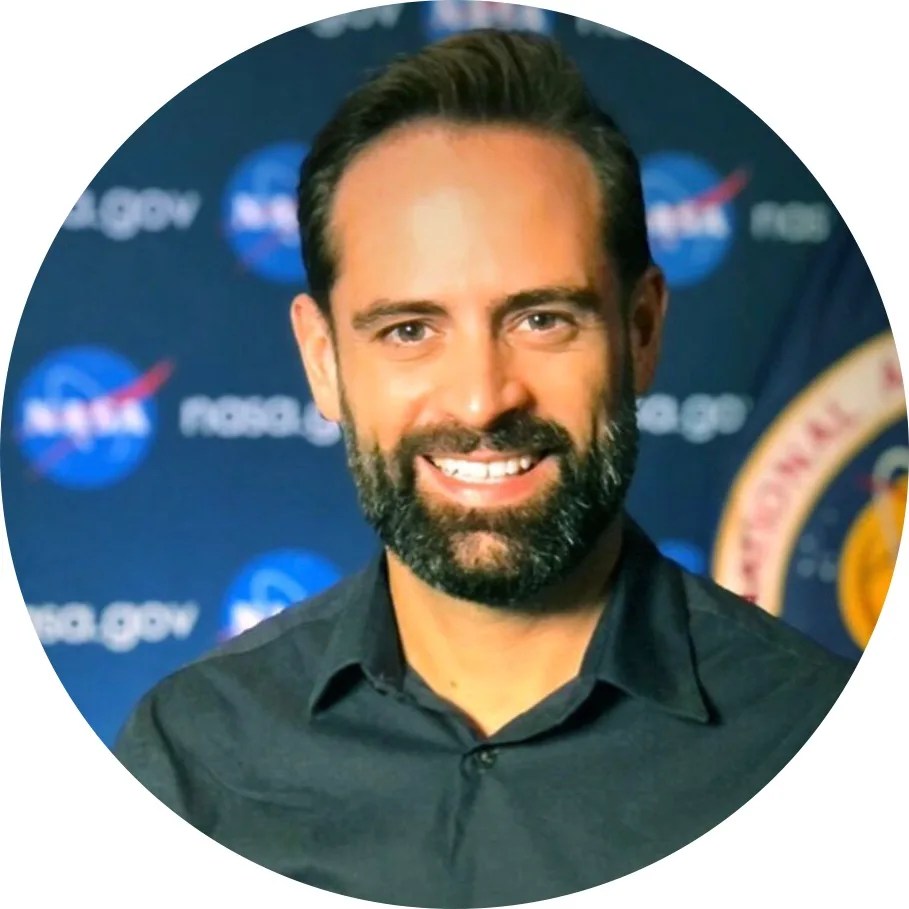
Dr. Lucas Paganini
Deputy Program Executive for the Roman Space Telescope (Roman)
Dr. Lucas Paganini assumed the role of Deputy Program Executive for the Roman Space Telescope at NASA Headquarters in October 2022. The Roman Telescope will explore the universe using infrared light, with a focus on dark energy, dark matter, and the discovery of exoplanets. Since May 2023, he has also served as Program Executive for NASA's Exoplanet Exploration Program (ExEP), dedicated to discovering and characterizing exoplanets to understand their origins, development, and potential for habitability. By studying exoplanets, NASA aims to answer fundamental questions about the diversity of planetary systems and the potential for life beyond Earth.
Prior to these roles, Dr. Paganini served as Program Scientist for the Juno mission (2021–2022) in Planetary Science, overseeing the development of mission goals for its extended phase exploring Jupiter and its moons Ganymede, Europa, and Io. From 2019 to 2022, he was the Program Executive for NASA's Europa Lander. His international experience includes serving as Program Scientist and interim Program Executive for ESA's JUpiter ICy moons Explorer (JUICE) mission, which included three NASA-led instruments. Additionally, he was a staff member at the Max Planck Institute in Germany (2004–2010), where he led the construction of spectrometers for international missions in collaboration between ESA, NASA, and the German Space Agency, such as Vesper, SOFIA, and the Europa Jupiter System Mission, now known as JUICE.
Dr. Paganini has authored more than 30 scientific articles in refereed journals covering topics such as planetary atmospheres, icy moons, comets, and instrumentation during his academic tenure at the Catholic University of America and American University. He led the telescopic survey that confirmed water vapor on Jupiter's moon Europa, showcasing his significant contributions to planetary science.
Dr. Paganini earned his Ph.D. in Natural Sciences from the University of Freiburg, Germany, in 2008, and holds a master's degree in Electronics and Telecommunications Engineering from the University of Mendoza, Argentina, graduating in 2003.
Más sobre Lucas en NASA español.
